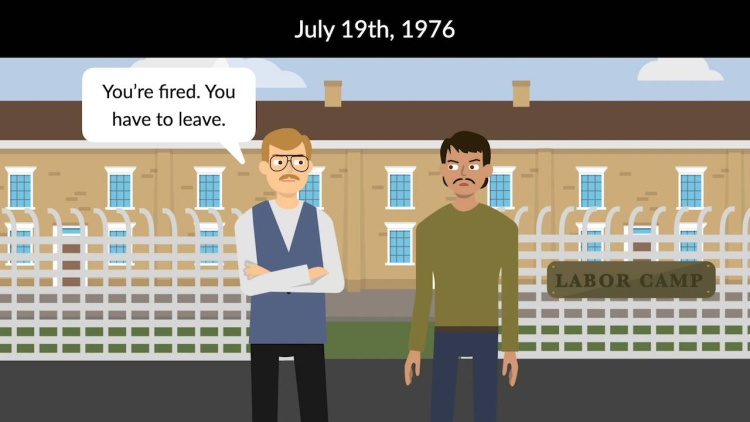Vasquez v. Glassboro Service Association, Inc.
New Jersey Supreme Court
415 A.2d 1156 (1980)

- Written by Sean Carroll, JD
Facts
Glassboro Service Association (Glassboro) (defendant) was a nonprofit corporation made up of farmers who contracted with Glassboro for the services of migrant farm laborers from Puerto Rico. Glassboro operated a labor camp in New Jersey where it housed its migrant-worker employees. The camp consisted of barracks with common facilities and no real privacy. Under Glassboro’s contracts with its workers, Glassboro would pay workers $2.40 per hour and charge $23 per week for meals. The contracts did not require the workers to pay to live in the barracks. The contracts further provided that if the workers completed their contracts, Glassboro would provide for their transportation back to Puerto Rico. However, if a worker was fired, Glassboro would not provide for their transportation. Natividad Vasquez (plaintiff) came from Puerto Rico to work for Glassboro in New Jersey. However, Glassboro’s foreman said that Vasquez’s work was not good, and Vasquez was soon fired. Although there was still an open bed at the barracks, Glassboro did not allow Vasquez to remain overnight in the barracks after he was fired. As a result, Vasquez was left with no money and no means of getting home to Puerto Rico. The Farmworkers Rights Project filed a complaint on Vasquez’s behalf, seeking an order permitting Vasquez to reenter the barracks and an injunction prohibiting Glassboro from denying Vasquez use of the barracks except through judicial process. The trial court ruled that Glassboro could evict Vasquez from the barracks only in a judicial proceeding, and the appellate court affirmed. Although Vasquez subsequently found other housing, the New Jersey Supreme Court granted certification to consider the recurring question of whether migrant farmworkers should be evicted through a judicial proceeding rather than through a landlord’s exercise of self-help.
Rule of Law
Issue
Holding and Reasoning (Pollock, J.)
What to do next…
Here's why 907,000 law students have relied on our case briefs:
- Written by law professors and practitioners, not other law students. 47,100 briefs, keyed to 996 casebooks. Top-notch customer support.
- The right amount of information, includes the facts, issues, rule of law, holding and reasoning, and any concurrences and dissents.
- Access in your classes, works on your mobile and tablet. Massive library of related video lessons and high quality multiple-choice questions.
- Easy to use, uniform format for every case brief. Written in plain English, not in legalese. Our briefs summarize and simplify; they don’t just repeat the court’s language.





